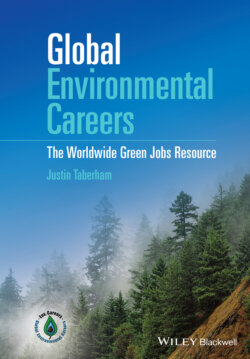Читать книгу Global Environmental Careers - Justin Taberham - Страница 26
Changing Patterns in ‘Hot Topics’ and Funding
ОглавлениеIf your aim is to develop a long‐term career in the environment sector, there are significant challenges in the fact that the areas of work that attract funding, and therefore offer more jobs, shift from year to year. Government funding priorities can have an immediate impact on the sector, such as announcements on support for areas such as wind power and solar. The classic way to respond to this is to become a generalist, with skills that enable you to shift across areas, but ultimately if your aim is to be, for example, a fisheries or ecology professional you need to develop your skills to enable you to develop a career in the area and to ride out any periods of recession in your sector. In the early 1990s when I graduated, there were few jobs being created in fisheries, but there was still ‘movement’ in the sector which enabled me to get a job and get on the career ladder.
The media hot topic of plastic pollution has increased the profile of water pollution, life cycle analysis, materials production, waste minimisation and management and recycling, but it has had minimal effect on global green jobs. However, the need for solar and wind energy, for multiple reasons including energy production diversity, lower energy costs, climate change response and non‐renewable resource limitations, has led to a rapid increase in global employment. The drivers for green jobs growth are many and varied. As noted earlier, a sensible approach is to develop skill sets which enable you to respond to sectoral changes but stick to the main core of the roles which led you to work in the green sector in the beginning.
However, there are a number of sectors displaying increasing investment and global jobs growth which are worth exploring if you want to develop a green career.
